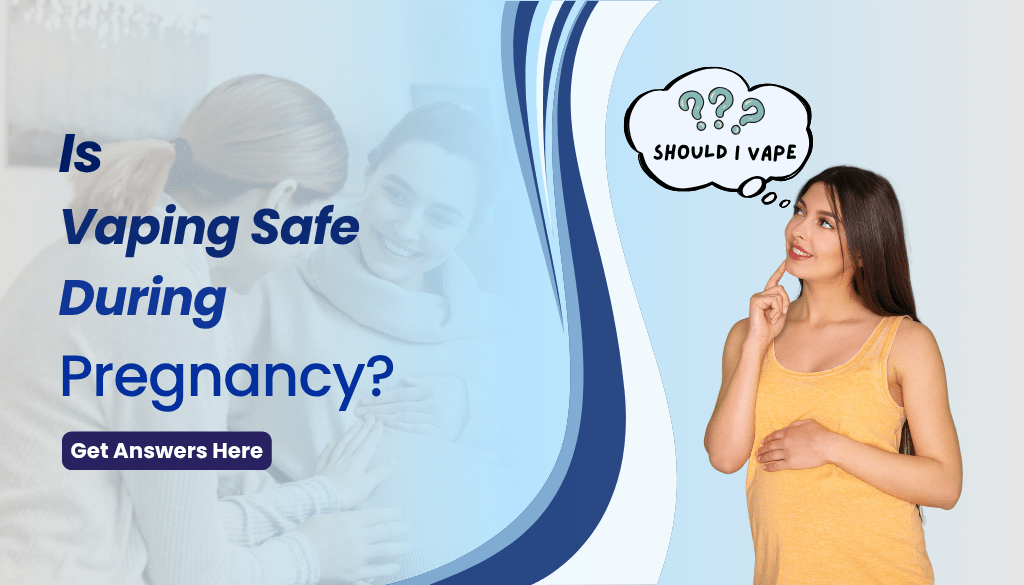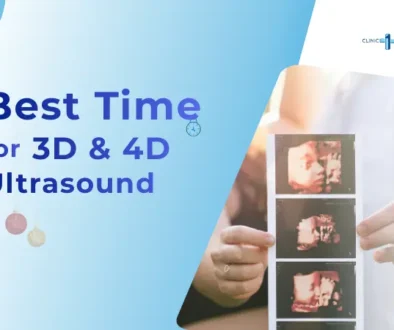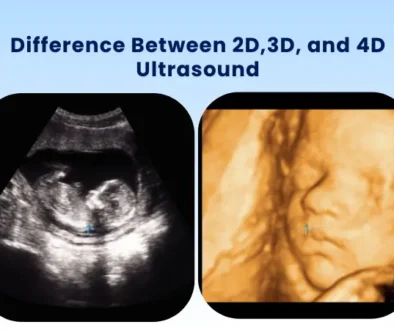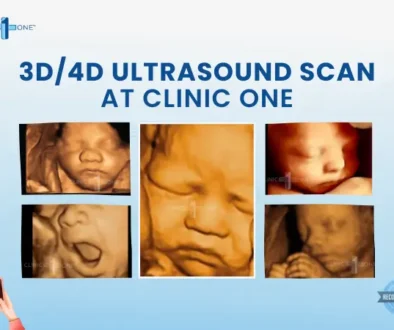Is Vaping Safe During Pregnancy? Risks and Safer Alternatives

Last updated on May 13th, 2025 at 12:15 pm
Introduction
Vaping might seem like a less risky choice compared to smoking, but is vaping safe during pregnancy? No, vaping is not safe for pregnant women, as it can harm both you and your baby. Many believe e-cigarettes are less harmful than smoking, but they still pose serious risks to fetal development.
Health Risks of Vaping During Pregnancy
Vaping during pregnancy exposes your baby to harmful substances like nicotine and other chemicals, which can disrupt critical developmental stages. Even occasional use of e-cigarettes can affect fetal health.
Below are the specific risks to your baby:
Risks to Fetal Health
- Sudden Infant Death Syndrome (SIDS): Nicotine exposure increases the risk of SIDS, where a healthy infant dies unexpectedly during sleep. Quitting vaping reduces this risk.
- Premature Birth: Vaping raises the likelihood of delivering before 37 weeks, which can lead to respiratory or developmental issues.
- Low Birth Weight: Infants of mothers who vape often have lower birth weights, increasing their vulnerability to infections and growth delays. Regular screenings can monitor your baby’s growth.
- Fetal Developmental Issues: Nicotine and other chemicals can impair brain development, potentially causing cognitive or behavioural challenges.
- Lung Development Impairment: Vape chemicals may hinder fetal lung growth, raising the risk of respiratory problems after birth. A Pulmonary Function Test, in short PFT, can assess your lung health to address related concerns.
If you’ve vaped, PFT evaluate potential lung damage, while ultrasounds can track your baby’s growth.
Schedule a PFT and Fetal Screening at Clinic One
Misconceptions About Vaping During Pregnancy
Misinformation about vaping can mislead expectant mothers. Below, we address common myths to help you make informed decisions:
- “Nicotine-free vapes are safe.” Even without nicotine, e-cigarettes contain chemicals that may harm fetal development.
- “Vaping is safer than smoking.” While e-cigarettes may have fewer toxins than cigarettes, they remain unsafe during pregnancy.
- “Flavoured e-liquids pose no risk.” Flavoured e-liquids often include chemicals that can affect fetal growth.
How to Quit Vaping?
Quitting vaping is essential to protect your baby’s health. Here are safe ways to quit:
- Consult a Healthcare Provider: Discuss quitting strategies with your physician, who can provide guidance tailored to your pregnancy.
- Join Support Groups: Connect with other expectant mothers working to quit, fostering motivation and shared experiences.
- Pursue Behavioural Therapy: Work with a counsellor to identify vaping triggers and develop effective coping strategies.
- Adopt Stress Management Techniques: Practice physician-approved methods like mindfulness or deep breathing to manage cravings.
Why Screen for Lung Damage and Fetal Growth?
Vaping can harm your lungs and can lead to the development of lung cancer and affect your baby’s development, but early detection makes a difference. Pulmonary Function Testing (PFT) measures your lung function to identify any damage from vaping, helping you take steps to protect your health.
Regular fetal screenings, such as ultrasounds, track your baby’s growth to ensure they’re developing properly. These screenings provide peace of mind and allow your healthcare team to address any concerns promptly.
Don’t wait, get your PFT and ultrasound done at Clinic One
Conclusion
Vaping during pregnancy is unsafe, posing risks such as SIDS, premature birth, low birth weight, and developmental impairments. Even nicotine-free vapes contain harmful chemicals. To safeguard your health and your baby’s, quit vaping and consider PFT to screen for lung damage and fetal screenings to monitor growth, like at Clinic One.
Consult your healthcare provider, join support groups, or explore behavioural therapy to quit successfully and ensure a healthy pregnancy.
FAQs
What happens if I vape during pregnancy?
Vaping can harm your baby. It may cause low birth weight, premature birth, developmental problems, and raise the risk of sudden infant death syndrome (SIDS).
When to stop vaping when pregnant?
You should stop as soon as you know you’re pregnant. Vaping exposes your baby to nicotine and other harmful chemicals that can affect development and increase the risk of complications like premature birth and low birth weight.
Is vaping better than smoking when trying to get pregnant?
No, vaping is not a safer alternative to smoking when trying to get pregnant. Both can affect fertility and harm your baby. It’s best to quit completely before trying to conceive.
How many puffs of vape are equal to a cigarette?
It varies by device and liquid, but roughly 10–15 puffs from a vape can deliver the same nicotine as one cigarette.
Can vaping cause a miscarriage in early pregnancy?
Yes, vaping during pregnancy can increase the risk of miscarriage. It contains nicotine, which is harmful to a developing fetus.
How to stop vaping while pregnant?
Talk to your doctor. They may suggest safe options like counselling, support groups, or nicotine replacement therapy if needed.
Can vaping kill a baby in early pregnancy?
Vaping can lead to serious complications, including miscarriage and developmental harm, but it’s not always immediate or obvious. It’s safest to avoid it altogether.


